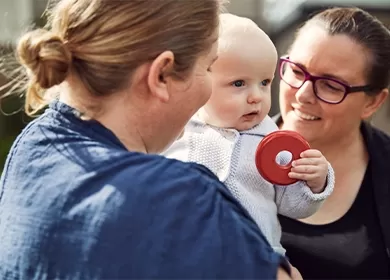Australian-first platelet trial could reduce blood loss during surgery
A new cold-stored platelet product that could reduce bleeding during complex heart surgery and potentially triple the existing product shelf life will be transfused to Australia’s first patient this week as part of a world-first trial.
Platelets are the blood’s tiny band aids and are used to stop major bleeding in emergency, trauma, and complex surgery. Currently platelets in Australia are stored at room temperature with gentle agitation based on evidence from the 1970s, and have a shelf-life of only 7 days.
The Chilled Platelet Study (CHIPS) is the first international clinical trial to test if platelets stored at 4°C are better at reducing blood loss during complex cardiac surgery than room temperature platelets.
The ground-breaking US Department of Defence funded clinical trial is being led internationally by the University of Pittsburgh and in Australia by Australian Red Cross Lifeblood and the University of Western Australia.
CHIPS Australia Clinical Lead Researcher and Lifeblood Transfusion Medicine Specialist, Dr Anastazia Keegan, said recent research shows cold-stored platelets may do a better job of controlling bleeding and offer advantages in some situations, such as complex cardiac surgery.
“Most platelet transfusions are given to cancer patients who have low platelet counts. When platelets were first introduced in the 1960s, they were stored in the cold, but research found room temperature platelets survived longer in the body post-transfusion, so cold storage of platelets was abandoned,” Dr Keegan said.
“This recent research by Lifeblood and others internationally suggests that cold-stored platelets may be more effective at helping blood clot. This is because cold storage causes many changes in the platelets that makes them become more activated, and ready to clot.
“This could improve patient outcomes for surgical, emergency and trauma patients, because unlike chemotherapy patients, they don’t need the platelets to survive for long post-transfusion, they just need them to act quickly to stop the bleeding.”
Funded by the US Department of Defence under a grant of $26 million USD, the randomised controlled trial will involve 1000 complex cardiac surgery patients spanning Australia and the US. In Australia, the study is open to patients from Fiona Stanley Hospital and Sir Charles Gairdner Hospital in Western Australia, and will use platelets collected at Lifeblood’s Perth Donor Centre.
Patients in the study will be randomly assigned to receive platelets stored at 4°C or at room temperature. As the study progresses, the storage duration of cold-stored platelets may gradually be increased from 7 days to a maximum of 21 days.
Lifeblood Principal Research Fellow Dr Lacey Johnson said it was exciting to see 10 years of Lifeblood research come to fruition as part of the trial, and any findings could one day benefit Australians across the country.
“Platelets are a precious resource donated by only two per cent of the population, but currently many expire before they can be used due to their short shelf-life,” Dr Johnson said.
“A longer shelf-life could reduce the number of platelets being discarded, which could lead to a more stable platelet supply nationwide.”
For more information on the trial visit ClinicalTrials.gov_CHIlled Platelet Study - "CHIPS".


